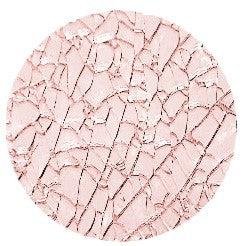Is This The Root Cause of Aging?
One of the least known factors that contribute to the aging of our skin is a process called glycation. Essentially, glycation happens when glucose (from sugars and carbohydrates) in the body attach to proteins such as collagen and form new molecules called advanced glycation end products (ironically referred to as “AGEs”). AGEs are renegade compounds that wreak havoc on protein fibres – destroying collagen and accelerating the signs of aging causing wrinkle formation, dry lines and weakening of the body’s connective tissue. Much of what is known about glycation’s ill-effects stems from diabetes research and its association with degenerative diseases, such as atherosclerosis, chronic kidney disease, and Alzheimer's disease.
While the root cause of aging may be the degeneration of collagen fibres – sugar (glycation) is the driving force behind the systematic destruction of collagen proteins in the body. Once the skin’s cells have become weakened from glucose – you are much more susceptible to the damaging effects of free radicals.
It can be a vicious cycle…and the cold, hard truth is that glycation is a fact of life. Even if you decide to drastically reduce sugar, you will not completely stop this process. Refined and processed sugars are the most damaging, but even healthy sugars from fruits, vegetables and whole grains that turn to glucose when digested contribute to the glycation process. However, do not forget that the body requires natural sources of sugar and they should never be entirely eliminated from your diet. (For example, the brain depends on glucose for fuel and is critical to its proper function.)
Why don’t you hear more about glycation and its destructive effects to the skin?
It could be because there are no anti-aging creams that can possibly stop the glycation processes – that is, the combination of proteins (including collagen) with sugar. Simply put, glycation is a natural phenomenon, which cannot be avoided.
Healthy, young skin, in which the synthesis processes outweigh the degradation phenomena (including glycation)
Mature skin, in which fibroblasts no longer produce healthy collagen fibres, to win the race against destructive factors, including glycation.



